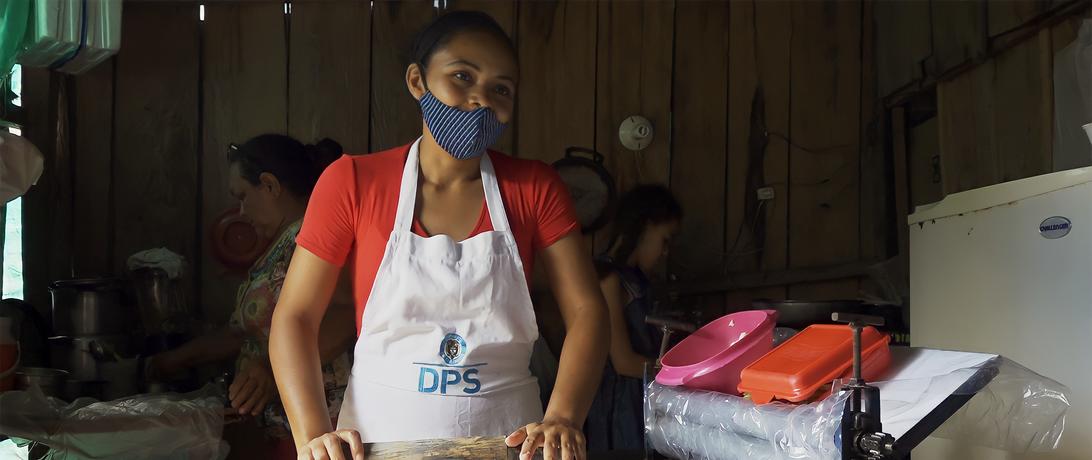
The ERA of the brotherhood in Saravena will seek to improve the living conditions of the migrant population, integrating it into the thriving economy of the Araucanian municipality under all the necessary biosecurity measures.
The Venezuelan population that has migrated to the border municipality of Saravena, as a result of the crisis in the neighboring country, shares a common yearning: to be able to provide for their families through their own work. For this reason, PASO Colombia, a program of One Earth Future, promotes the Rural Alternative School (ERA) of Brotherhood in times of COVID-19, located in Saravena, which is now co-funded by Aid Live Foundation. The project seeks to improve the living conditions of immigrants, by integrating them into the thriving economy of Saravena, under compliance with all the required biosecurity measures. Through training processes in production and the implementation of marketing strategies, the project expects to achieve an increase in income for 116 parents, as well as to improve the dietary standards of 500 vulnerable children.
“There are many positive contributions that we, as Venezuelans, can make,” says Eliana Herrera as she cooks the tequeños she sells downtown. She is the head of her household and provides for her children with the recipes she brought four years ago from her native state of Barinas. “We bring other skills with us, like this recipe. We want people to trust in us, so that we are able to stay focused and feel supported.” Indeed, trust will be a key element in the project, as the ERA of Brotherhood not only seeks to improve household income but to strengthen commercial, cultural, and social ties that have existed historically between the brother nations of Colombia and Venezuela.
The ERA of Brotherhood will implement a strategy that fosters scenarios in which migration becomes an opportunity for local development. One of them is the educational institution “Center for Rural Development” (CDR, for its acronym in Spanish), where Venezuelan parents or returning migrants will receive training on collective orchards, short-cycle productive projects, and campesino markets, to guarantee food security for their families. On the other hand, in the community eatery provided by the Mayor’s Office of Saravena, participants will learn how to prepare healthy and nutritious recipes for children, and will design nutritional minutes with dietary recommendations that will be distributed in their homes. Simultaneously, the community eatery will create business opportunities for local productive associations who will provide the ingredients needed in the kitchen. Parents will receive a supportive stipend for the time contributed to the project, prioritizing the empowerment of head-of-household mothers.
Both Aid Live Foundation and PASO Colombia share the vision of providing long-term solutions for Venezuelan migrants, by creating economic opportunities, building capacities, and forging links within participating communities. This partner network has been joined by the Mayor’s Office of Saravena, the CDR institution and its students, parents, and the Red Cross.
Article Details
Published
Topic
Program
Content Type
News